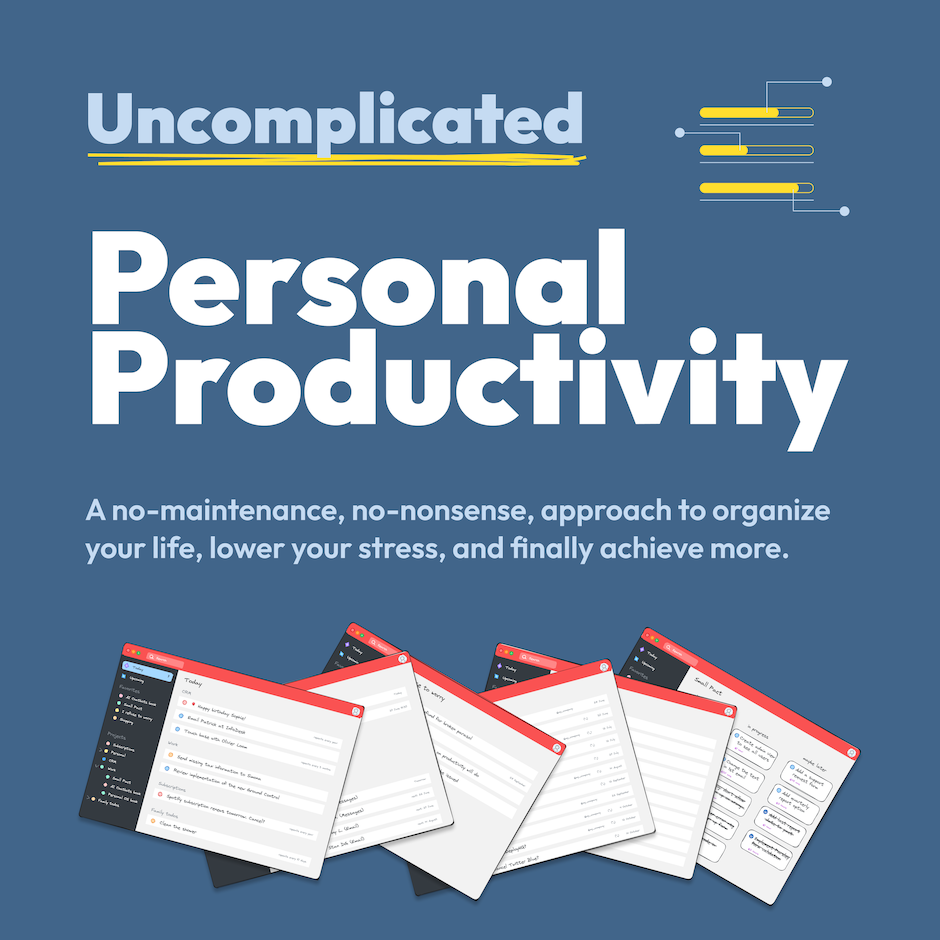The tenets of an Uncomplicated Personal Productivity
We don't have unlimited time.
We know that; it's easy to grasp.
But we equally don't have unlimited energy and even less quality energy.
When I was 20-something, I thought productivity was about cramming as much work as possible into my day. I would often start working relatively early and go to bed late.
I used and relied heavily on a performance-enhancement drug called caffeine.
In my early thirties, I heard this expression, "working smarter, not harder."
It made an impression on me.
But I'm not going to lie; I didn't understand it.
It took me being blessed with my kids a few years later to change my perspective on productivity.
Kids bring a lot of joy and chaos.
And if you don't outsource these two byproducts, you will have to evolve how you work and organize your life.
I've fiddled a lot with project and organization systems and methodologies. For a long time, I thought finding the right tool would 10x my productivity.
But the secret is that tools don't matter that much.
Just pick a tool that is simple to learn and operate and low maintenance. Then stick to it so it can become so natural and familiar that it acts as an extension to your work and life flows.
Personal productivity doesn't have to be complex.
It has only a few tenets for a foundation.
1. The tool works for you. You don't work for the tool.
Drop it now if your tool or system requires you to maintain it. You can find one that's easier to use. One that uses your precious time effectively.
2. Never try to remember a birthday again.
Waste no energy trying to remember things you will forget because you're not a machine. Create reminders for birthdays, expiring official papers, vaccinations, etc. Because when you don't, it floats somewhere in your head.
3. Just in time.
Speaking of cognitive load: don't spend energy or time thinking about tasks you can't or should wait to act on. Get your system to present the relevant tasks at the time. Not sooner.
4. Know what to do next.
Place on autopilot everything that can be. Packing list for a vacation? That should be a template. The following three tasks for this project? Those should be in there too.
Bonus point if you tag some of these tasks with an estimated duration. That way, you can quickly retrieve something to work on that matches the length of an unexpected spare time block.
These are the tenets.
Build your personal productivity on these, and your system will stand the test of time.
If you want to see practically how I implement this system, pick up the book:
